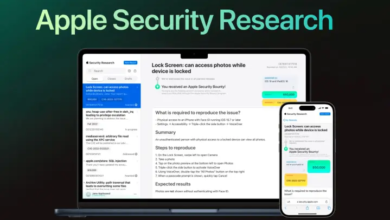Technological Disruptions and the Future of Work

In today’s fast-paced world, technology is advancing at an unprecedented rate, and its impact on the workplace is nothing short of revolutionary. From artificial intelligence to automation, these technological disruptions are reshaping the way we work, challenging traditional employment norms, and paving the way for an exciting and uncertain future. In this article, we will explore the profound changes brought about by technological disruptions and how they are shaping the future of work.
Technological disruptions
The digital revolution has ushered in an era of unprecedented change. With technological advancements accelerating at an astonishing pace, it’s crucial to understand how these disruptions are shaping the future of work. This article will delve into the various facets of this transformation, from the rise of artificial intelligence to the challenges of remote work.
The Rise of Artificial Intelligence
The Role of AI in Everyday Life
Artificial intelligence is no longer the stuff of science fiction; it’s become an integral part of our daily lives. From virtual assistants to recommendation algorithms, AI is everywhere. But how is it influencing the way we work?
AI has automated routine tasks, allowing workers to focus on more complex and creative aspects of their jobs. This shift has positive and negative implications for the workforce, as discussed in the next section.
AI in the Workplace
In the workplace, AI is a game-changer. It can analyze vast datasets, predict market trends, and even assist in medical diagnoses. However, concerns about job displacement have arisen, leading to debates about retraining and upskilling the workforce.
Read More: Best Technology Gadgets for Children in 2023
Automation and Job Transformation
The Impact on Manual Labor
Automation has transformed industries that rely heavily on manual labor. Factories now employ robots, reducing the need for human workers. While this boosts efficiency, it also raises questions about job security and the need for reskilling.
The Service Industry’s Evolution
Even the service industry is resistant to automation. Self-checkout kiosks, chatbots, and virtual customer service agents are becoming increasingly common. This shift has profound implications for employment in this sector.
Remote Work and Telecommuting
The Shift to Remote Work
The COVID-19 pandemic accelerated the adoption of remote work. Companies quickly adapted, allowing employees to work from home. But what does the future hold for remote work?
Pros and Cons of Telecommuting
While remote work offers flexibility and cost savings, it also presents challenges like isolation and blurred work-life boundaries. Striking the right balance will be essential in the future of work.
The Gig Economy and Freelancing
The Rise of Independent Workers
The gig economy has surged in popularity, with individuals opting for freelance work over traditional employment. This shift offers freedom and flexibility but comes with financial instability and limited benefits.
Challenges and Opportunities
Freelancers face unique challenges, including income volatility and lack of job security. However, they also enjoy the potential for higher earnings and diverse work experiences.
Skill Requirements for the Future
Adaptability and Lifelong Learning
In the ever-evolving world of work, adaptability is a prized skill. Lifelong learning and acquiring new skills quickly will be essential for staying relevant in the job market.
Creativity and Critical Thinking
Creativity and critical thinking become increasingly valuable as automation takes over routine tasks. These skills are difficult for machines to replicate, making them highly sought after.
Impact on Education and Training
Reimagining Education
Traditional education models may no longer suffice. A shift towards more flexible, online, and skills-based learning is essential to prepare individuals for the jobs of tomorrow.
Continuous Learning Models
Continuous learning will be a lifelong endeavor. Employers and individuals must embrace ongoing education to keep pace with technological advancements.
The Future Workplace: Collaborative and Digital
Virtual Reality and Augmented Reality
Technological disruptions: The future workplace may involve immersive technologies like virtual and augmented reality. These tools can enhance collaboration and productivity in a virtual setting.
Enhanced Communication Tools
Communication tools will continue to evolve, facilitating seamless remote work and global collaboration. Video conferencing and instant messaging platforms will play a crucial role.
Cybersecurity and Privacy Concerns
Protecting Sensitive Data
The need for robust cybersecurity measures comes with increased reliance on technology. Protecting sensitive data from cyber threats is paramount.
The Role of Ethical Hacking
Ethical hackers will be in high demand to identify vulnerabilities and strengthen digital defenses. This role is critical in safeguarding organizations from cyberattacks.
The Human Element in Technology
Emotional Intelligence
Technological disruptions: While technology advances rapidly, human qualities like emotional intelligence are irreplaceable. Empathy and understanding will remain essential in the workplace.
Empathy and Interpersonal Skills
Effective communication and interpersonal skills are key in a digital world. Building strong relationships and collaborating effectively will continue to be vital.
Challenges and Solutions
Addressing Technological Unemployment
Technological disruptions: As jobs are automated, addressing technological unemployment is crucial.
Challenges and Solutions
Addressing Technological Unemployment
Technological disruptions: As jobs are automated, addressing technological unemployment is crucial. Governments and industries must collaborate to create new opportunities for displaced workers.
Navigating Job Transitions
Workers facing job transitions need support and resources for upskilling and finding new employment opportunities.
Government and Policy Responses
Regulations and Worker Rights
Government regulations will play a significant role in shaping the future of work. Ensuring worker rights and fair employment practices is essential.
Encouraging Innovation
Governments can also foster innovation by investing in research and development, promoting entrepreneurship, and supporting emerging industries.
Read More: How to Create Personalized Digital Ad Experiences That Drive Results
Conclusion
The rapid and relentless march of technological disruptions is reshaping the future of work as we know it. From the integration of artificial intelligence to the automation of various industries, these changes are both exciting and challenging. The traditional work landscape is evolving into something entirely new and dynamic.
As we navigate this transformation, embracing change rather than fearing it is crucial. Adapting to new technologies, cultivating a spirit of lifelong learning, and honing uniquely human skills, such as creativity and emotional intelligence, will be essential.
In this new era of work, individuals must take charge of their career development, seeking opportunities to upskill and stay relevant. Governments and policymakers should play a pivotal role in creating an environment that fosters innovation while ensuring fair and ethical practices.
Ultimately, the future of work is not set in stone; it’s a canvas waiting for us to paint our own stories. By staying open to possibilities, collaborating across boundaries, and investing in our personal and professional growth, we can thrive in this era of technological disruptions. The future is ours to shape, and it promises to be a fascinating journey filled with innovation and opportunity.
FAQs
Q1: What industries are most affected by technological disruptions?
A1: Industries most affected by technological disruptions include manufacturing, retail, finance, healthcare, and transportation, among others. Advancements in automation, artificial intelligence, and digital transformation drive these disruptions.
Q2: How can individuals prepare for the future of work?
A2: Individuals can prepare for the future of work by acquiring new skills and staying adaptable. Continuous learning, upskilling, and developing skills in digital literacy, critical thinking, and emotional intelligence are essential to remain competitive in the evolving job market.
Q3: What role will government policies play in shaping the workforce of tomorrow?
A3: Government policies can significantly impact shaping the workforce of the future. They can influence education and training programs, worker rights, regulations related to automation and AI, and incentives for innovation and entrepreneurship. Government initiatives can help ensure a balanced and inclusive future workforce.
Q4: Are there ethical concerns associated with AI and automation in the workplace?
A4: Yes, ethical concerns surround AI and automation in the workplace. These include issues related to job displacement, bias in AI algorithms, privacy concerns, and the ethical use of technology. Addressing these concerns is crucial to ensure that technological advancements benefit society.
Q5: How can companies foster a culture of adaptability and innovation among their employees?
A5: Companies can foster adaptability and innovation by promoting a culture of continuous learning, encouraging employees to take risks, providing opportunities for skill development, and creating an environment where employees feel valued and empowered to contribute their ideas. Leadership supporting and rewarding innovation is also key to fostering such a culture.











